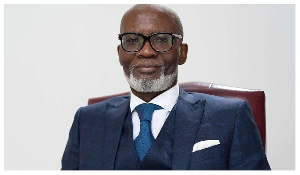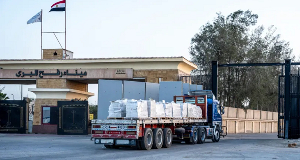A High Court in the United Kingdom has thrown out the Government of Ghana's challenge on processes used to serve the country proceedings relating to a judgment debt claim by GPGC, a subsidiary of international commodities company, Trafigura.
The company sued the Ghana government over the termination of two power deals and was awarded a judgment debt of US$140 million by a UK court.
Ghana contended, however, that the company under existing laws had to serve the government through diplomatic channels contrary to a ruling that allowed them to use alternative service.
The High Court ruled that Ghana's move to invoke the State Immunity Act provisions as basis for which Trafigura could not serve them judgment debt documents via post and email, was untenable.
Trafigura, via email, went through the finance ministry in serving the court documents with all correspondence duly acknowledged and court dates agreed as GoG asked its lawyers to engage with the company.
"Trafigura, a multinational commodities-trading company based in Singapore, is the majority owner of GPGC, a power company which secured the award in January 2021 after an arbitral tribunal found that Ghana had unlawfully terminated a contract for the installation and operation of two power plants," Global Arbitration Review wrote in an October 13 publication.
In GPGC v The Government of the Republic of Ghana, GPGC was represented by James Willan KC and Catherine Jung of Essex Court Chambers, instructed by Stephenson Harwood.
Ghana was represented by Stephen Houseman KC and Luke Tattershall, also of Essex Court, instructed by White & Case.
Dismissing Ghana's challenge:
In dismissing Ghana’s application, Master Davison considered the wording of section 12 of the SIA which specifies that the “document(s) requiring service through diplomatic channels are ‘any writ or other document required to be served for instituting proceedings against a State’” (judge’s italics) and therefore whether serving documents post-arbitration could fall with the “instituting proceedings” definition. GPGC argued that the documents to be served were part of a continuing process and were therefore not instituting proceedings; rather, the applications being made “were simply steps in the enforcement proceedings so instituted and could therefore be served by one of the ordinary methods of service, or by alternative service”. This is, perhaps, best illustrated by The European Union v The Syrian Arab Republic [2018] in which Mr Justice Bryan ruled that the relevant provision in the Civil Procedure Rules (6.44), which has been adjudged to be coterminous with section 12 of the SIA on several occasions, “is not concerned with service of documentation once proceedings have been served upon a State”.
Aside from the definition of “instituting proceedings” the SIA also allows for service outside diplomatic channels if there is “good reason” for an alternative method of service; in this respect, Master Davison decided that the “good reason” test had been passed, because “this is a case where to require service through diplomatic channels would generate multiple periods of serious delay”. And, given that the lease on Regina House was soon to expire, any delay could prove critical to enforcement proceedings.
SARA
Watch the latest edition of BizTech below:
Ghana’s leading digital news platform, GhanaWeb, in conjunction with the Korle-Bu Teaching Hospital, is embarking on an aggressive campaign which is geared towards ensuring that parliament passes comprehensive legislation to guide organ harvesting, organ donation, and organ transplantation in the country.
Business News of Wednesday, 18 October 2023
Source: www.ghanaweb.com













